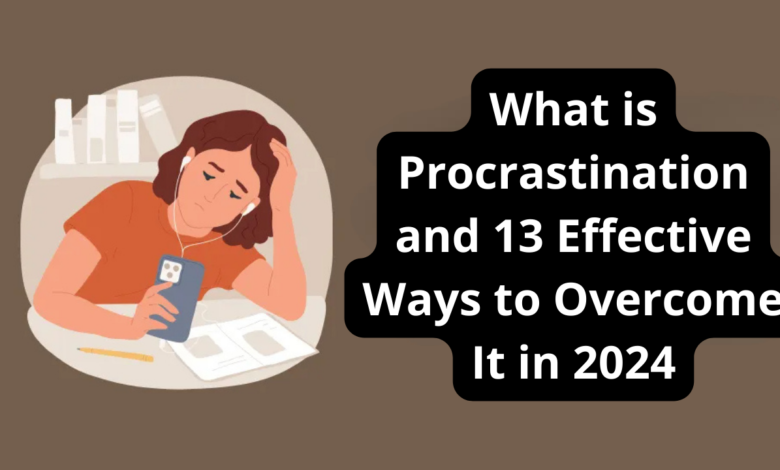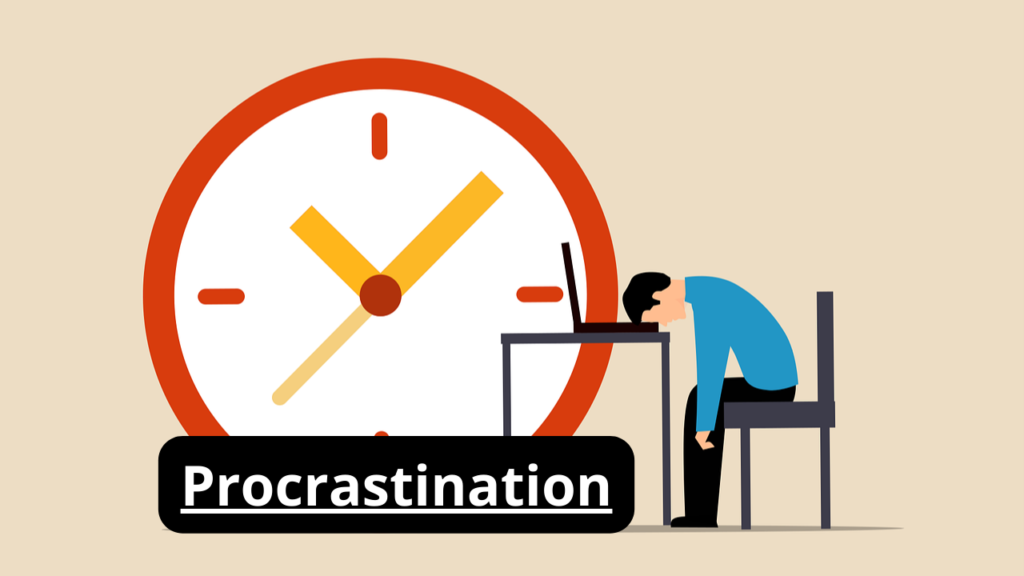What is Procrastination and 13 Effective Ways to Overcome It in 2024

Procrastination is the continuous acts in most of our lives, however busy, organized, and committed we are. This usually makes us leave so many things to the last minute, going out of this world at worst without the quality and preciseness it would have had if we started from scratch.
With this wide sprawl of the phenomenon, procrastination has consequences on our productivity and daily lives. This article, therefore, shall form a comprehensive source of information regarding the issue: its definition, causes, and more importantly, how to effectively fight back.
What Is Procrastination?
Well, procrastination is simply avoiding priority tasks for other, less important or totally irrelevant activities, even though you are fully aware of the necessity of the primary task.
Procrastination didn’t become a problem today; it is deeply rooted in human behavior since ancient times. Proof can be found in Greek texts and generally among all ancient civilizations.
Contrary to its appearance, procrastination does not relax us by doing an easier and more enjoyable task. Instead, it leaves us with feelings of guilt, remorse, and fear of the task we are avoiding.
If not dealt with, procrastination can have a serious effect on your daily life, whether in work or study, leading to severe depression and self-loathing in the long term.

Causes of Procrastination
We procrastinate for several reasons, including:
- Perfectionism: Sometimes, we intend to do certain things with excessive perfectionism. We get caught up in minor details and lose the core point. For example, over-planning or waiting for that perfect moment to start.
- Perceived Task Difficulty: When we are approaching a task which we have never done, we tend to overestimate its difficulty and hence we delay it as much as possible. However, when we start working on them, we realize they aren’t as tough.
- Distractibility: With several diversions now available at the click of a mouse button, procrastination has become very common as one is always distracted from performing any particular task.
- Ill-defined Tasks: If you’re not aware of the specifics of what you are to do, then you fear the task. This fear makes one procrastinate. Be aware and have the self-push to begin.
- Lack of Motivation: Most of the tasks do not have any specific deadlines. It is tough to get motivated. This usually results in procrastination till the last minute, for example, studying only before exams.
- Last-Minute Syndrome: Some people have the illusion that they will be able to complete a task at the last moment without any problems, which results in procrastination with below-average results.

How to Overcome Procrastination
Now, after understanding what procrastination is and its causes, here are 13 effective ways to overcome it quickly:
- Minimize Decision Fatigue: The fewer decisions you need to make each day, the less you will procrastinate. Decision-making drains your energy, so plan your day in advance.
- Avoid Substitution: Never allow yourself to substitute your planned tasks with more pleasurable or seemingly useful activities. If you don’t feel like doing the task, sit in silence until you start.
- Organize Your Workspace: Make a comfortable, distraction-free work environment.
- Start with Simple Steps: Make the tasks more appealing to your brain by easing into them with the simplest steps.
- Set Realistic Goals: Unrealistic goals have the tendency of letting in procrastination. Fix achievable, measurable goals.
- Complete Tasks in One Go: Try to finish tasks in one sitting or break them into smaller, manageable parts.
- Reward Yourself: Small rewards for the completion of tasks will help to build positive reinforcement.
- Accountability: Have someone check your progress to keep you on track.
- Eliminate Distractions: Take away all the distracters from the environment where you are working.
- Forgive Yourself: Let go of past procrastination to focus on positive actions now and in the future.
- Understand Your Mind’s Tricks: Learn to recognize and resist the usual distractions that your brain uses to procrastinate.
- Work in Groups: Co-working helps to maintain motivation and accountability.
- Start Now: Begin working on a task immediately after counting to three to overcome initial resistance.
Conclusion
Procrastination resides in all of us, avoiding tasks and hence wasting time because of that tinge of guilt. We have talked so far about what the reason could be behind procrastination and how one can overcome it, both psychologically and in your workspace.



